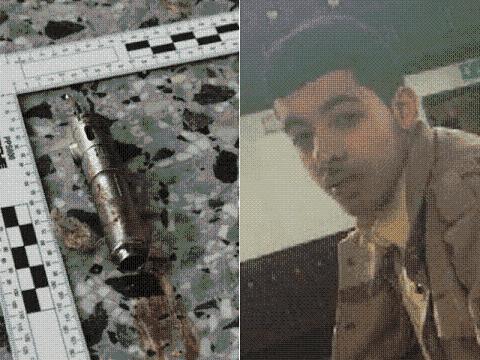by WorldTribune Staff, May 25, 2017
“Furious” UK investigators have stopped sharing intelligence gathered from the Manchester bombing with the United States after U.S. law enforcement sources leaked key details and photographs from the investigation to domestic journalists.
Just as angry was U.S. President Donald Trump. In a presidential statement issued while Trump was at NATO HQ, he called the Manchester leaks “deeply troubling,” vowed to “get to the bottom” of them and demanded a full investigation by U.S. agencies.

The statement added: “The leaks of sensitive information pose a grave threat to our national security. I am asking the Department of Justice and other relevant agencies to launch a complete review of this matter, and if appropriate, the culprit should be prosecuted to the fullest extent of the law. There is no relationship we cherish more than the Special Relationship between the United States and the United Kingdom.”
While British police had discovered the identity of the terrorist who killed 22 in Manchester on May 22, the name was withheld from the media initially for operational reasons, the BBC reported.
Yet less than 24 hours after the attack took place, American newspapers citing “government sources” were able to name the attacker as Salman Abedi.
British Prime Minister Theresa May raised concerns over the leaks with U.S. President Donald Trump at a May 25 NATO meeting.
“We have strong relations with the United States, our closest partner,” the prime minister told reporters as she entered NATO’s headquarters in Brussels, “and that is, of course, built on trust. Part of that is knowing intelligence can be shared confidently, and I will make clear to President Trump that intelligence shared with law enforcement agencies must be secure.
Additionally, detailed crime scene information, and photographs of shrapnel, a backpack, and a battery were released by The New York Times.
The nature and speed of the leaks have caused “disbelief and astonishment” in the British government.
“These leaks were reprehensible, deeply distressing,” Lewis Lukens, U.S. charge d’affaires in London and acting ambassador to Britain, said on BBC radio on May 25. “We unequivocally condemn them.”
“The United States government is launching an investigation into these leaks and will take appropriate action once we identify the source of the leaks,” he added. “We are determined to identify these leaks and to stop them.”
The BBC report said U.S. law enforcement officials are “likely” responsible for the leaks. Those officials would have received access to the data through the transatlantic “Five Eyes” intelligence sharing agreement.
The UK’s Daily Telegraph reported that officials with access to the shared Five Eyes intelligence “were openly briefing the media on what they had been told about Abedi and his ‘cell of ISIS-inspired terrorists.’ ”
[The Five Eyes intelligence sharing agreement, a treaty that dates back to the Second World War between the United States, the United Kingdom, Canada, Australia, and New Zealand means the involved nations have total unrestricted access to each other’s intelligence collection efforts. The geographical positions of the involved nations and their various ex-colonial outposts make the agreement not just unparalleled in openness, but also in global coverage for signals and other intelligence. The agreement does, however, rely on each nation also respecting the security of each other’s intelligence — a principle that appears to have been seriously transgressed in this case.]